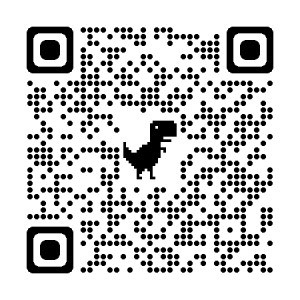
How to Write a Job-winning Resume
Here are some tips to make a resume that can ensure you have a fighting chance in landing a job.
Practically everyone wants to land a good job that will ensure ample financial security for their loved ones. Part of that journey is being able to apply at a notable employer with a resume that matches the needs of the role. But, how does one finally win them over and get the spot?
Length of the resume
Some noted HR recruiters claim that a resume/CV should optimally go up to three pages maximum. This is to keep a recruitment team spending as judicious a time going into each resume they process and whose information they must account for, given that they may be running through a large amount of resumes at any given day. Anything longer than three pages may probably be rejected.
What to put on your resume
Personal details
Start with the basic particulars: name, age, physical address, and contact details such as phone number and email address. If you have a specific email address designed for work, you can use that one, keeping your personal email safe.
Personal statement
The personal statement will go under the personal details section. It is a summation of your skills and career goals, conveyed in a confident tone. Some HR experts advise toning the length of the statement to one paragraph with up to four sentences at 200 words max.
The resume should contain Employment history
You must list down your entire work record, starting with your most recent employer. Each item will include the time you spent with them, career highlights, and the roles you assumed, especially if there were promotions or lateral movements.
The career highlights can be expounded with certain details that may be tweaked to leave out brand names if they are proprietary information. For example, if you worked for a company that manages service work with clients and are now applying for another company with similar functions, you can put in a general description of the client accounts you handled without actually naming the companies themselves. However, be careful not to embellish anything as the company may call the former employer for corroboration.
Educational background
Take the time to list down the schools you attended over the years, and if you have certain academic milestones, put them down under each item. A high school background may be the earliest on the list, but if you have undergone postgraduate studies, expound briefly on notable items while taking up the course.
Further analysis of the educational background may lead the recruitment team to process you for other relevant roles in the company if they have already filled up a specific spot you’re applying for. While your application requirements may include submitting certified true copies of your diploma and academic transcripts, be aware that the company will exercise due diligence to confirm the educational background, to the point of contacting the schools themselves.
Skill set and credentials
List down the work skills and credentials that are most relevant to the position you are applying for. Your credentials may include professional certifications you have earned over the years, indicating more specialisation in your career track.
In many cases, you must honestly rate your proficiency rating with certain skills to avoid the risk of being thrust into tasks you’re not trained to handle. For example, you might have rudimentary experience with Google Sheets or Excel – but the role requires managing multiple spreadsheets with complicated formulas.
Professional/character references
A number of resume-writing experts recommend listing some character references if the applicant doesn’t have much of a detailed work history or needs some supporting material for a moderately extensive record.
You can put up to three people who actually know you well and whom you have worked alongside before; general examples include a senior manager or immediate supervisor, a noted college professor, or a business coach of a development course you took up. You must have maintained close contact with them, including updated contact details; in some cases, you may have to ask their permission to be a character reference if you are updating your resume and find that your existing references have passed on or have changed phone numbers. The recruitment team will call them up to ask for more background about you, ranging from work habits, relationship to you, and any reasons for leaving the company (in the case of higher-ranking colleagues).
Do not include any relatives (including near-close contacts such as siblings of in-laws), as recruiters can presume they will always paint you favourably instead of making an objective evaluation of you.
If your most previous employment did not end amicably due to various circumstances and believe any contact with them may derail what may be a promising application with your new company, you can possibly contact a senior whom you have a good relationship with but left the company well before any events that led to your departure. You may also state such concerns with the prospect employer and try to find a workaround. Some recruiters may see this as a sign of your honesty, maybe more so if you are the only candidate for the role listed and the company is racing against time to fill up the vacancy.
Hobbies and interests
Some information about your hobbies and interests can be placed on your resume. This gives hiring managers an idea of how you spend your time outside business hours. However, some professional resume writers claim inserting a section on hobbies and interests should be done sparingly, only in circumstances such as the applicant has little or no work experience, the educational background is not that extensive, or the company does require listing them.
Social media links
In the age of social media, the recruitment stage may involve looking into the applicant’s digital presence to see the state of their activities and determine if some of their content may be positive or detrimental to the organisation. For example, a government agency with sensitive core functions will make it a point to have applicants share all their social media accounts. This allows the HR division to see whether the applicant has posted anti-government material, thereby putting them for rejection. In the same vein, evidence of a strong social media presence may require successful candidates to sign a corporate social media policy to protect the organisation.
With LinkedIn becoming a popular tool for the professional employment circuit, many applicants include account URLs in their resumes for the recruitment staff to analyse and match with the hard copy. Depending on the account settings, the profile visibility may also reveal if the applicant has recommendations from former colleagues or if they are connected with any of the subject company’s present or former staff.
When you take the above into account, the resulting document might be the one that makes you stand out in that pool of applicants. Start drafting it today.
Why not streamline your bills, finance, and subscription with UMONEY — your own personal command centre from UBOMI!
If you liked our “How to Write a Job-winning Resume” and find it useful, check our blogs regularly for more information to get updates on UBOMI’s budget app and expense tracker.




